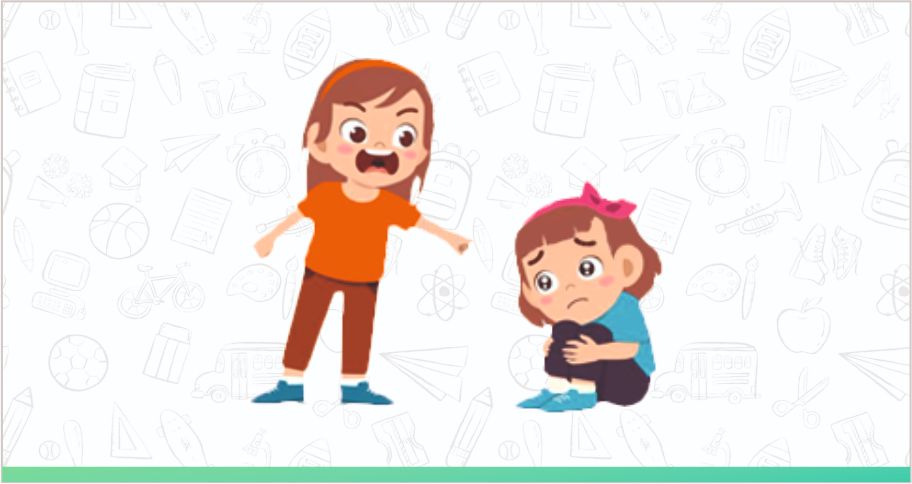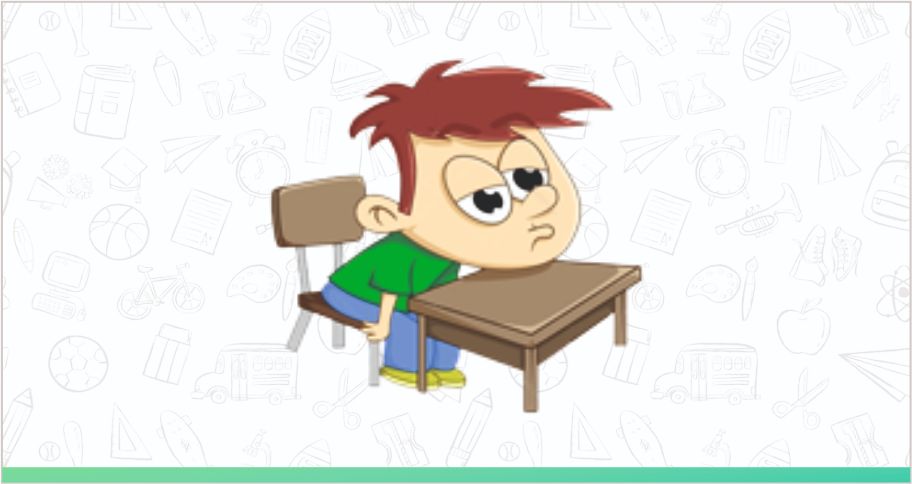Top 5 Child Behavioral Problems And Solutions
Indrani Raha |
Parents Corner |
2023-09-05 |
null mins read

Table of Contents
Is your son uncontrollably loud and stubborn? Does he answer back rudely every time you say something? Or is your daughter back talking to you in public, and every time you take her out to a friend’s house, she gets excited and helps herself to anything and everything she ‘likes’ without asking? Well, for them, that’s something familiar to break the rules and go against the norm to ‘test’ authority. This helps them to understand which child behaviour is appropriate and which is not. So, dear parents, you just need to be patient enough and go through this article! We understand you better, and so to make your life a tad bit easier, we have come up with a few pieces of information about the common child behaviour Problems and Solutions. So, keep reading!
Some Common Child Behaviour Problems and Their Solution
1) Disrespect and Backtalk

When your four-year-old daughter talks back to you, you might enjoy it. But when your nine-year-old girl shouts and says “no” every time you tell her to do something, it can get on your nerves. If not taken care of properly, backtalk can lead to arguments between you and your children.
So What Do You Do?
- If your son or daughter follows your instructions, even after talking back, appreciate that they did what you asked for, even if they didn’t want to. You can then tell them it is okay to be angry but not okay to speak to you disrespectfully.
- But if his responses are threatening others or himself, then dear parents, you need to pay attention to what he says and handle it carefully.
- Do not respond impulsively. Let your child calm down and then address what he or she said. Please make sure to tell them calmly about what child behaviour is acceptable and what is not.
- It’s vital to set limits and make him aware of the consequences—no need to threaten. You can simply state that if he talks back, he won’t get his favourite toys or will not be allowed to watch movies. However, if he stops shouting and listens to you, make sure to show him some love by cooking something he loves. Such give-and-take will look less controlling yet will give options to your child.
Each one of us already knows that we elders need to cross-check our conduct alongside too when child behaviour is concerned. As kids learn from whatever they see around them, it’s crucial that we correct ourselves first.
2) Abusive Language
Children often scream when they are angry. But if they start using abusive language, then it’s high time you should check on them. They may start yelling or swearing to bring you into an argument or simply to get their way. In such cases, here is what you should do:
- Dear parents, first of all, please make sure you are not using such language in front of them.
- Always keep zero tolerance for any kind of verbal abuse at home and convey to them that there is no excuse for swearing or cursing. So if they use such language, there will always be a consequence. Try to explain the consequences clearly and ensure they are in place. For example: if your nine-year-old girl is grounded for abusive language one day, you can tell her that she will have to miss her favourite cartoon or music class.
- If your little one is using such language, correct him immediately. Tell him it is a “bad word,” and people do not like those kids who use that kind of word or language.
We know you don’t use it. But what if by chance you do? Just an apology will set everything, alright!
3) Aggressive behavior
It is okay for toddlers to get angry. And it’s the most common child behaviour problem and we have solutions ready for you! But if that anger turns into aggressive child behaviour in children, it is a problem. Mood swings, psychosis, conduct disorder, trauma, impulsiveness, or frustration are a few causes of aggression in young children. At times, they may resort to violence for self-defence.
Sometimes, the violent child behaviour of your toddler depends on how well the environment is at home or school. Does your son often react to a negative response by beating or kicking? Then this is what we suggest:
- Most parents often have a misconception that yelling back at kids is the easiest way to respond to aggression. But if you do so, you end up teaching your child the wrong things. Due to which your kids will never know how to control their impulses and emotions. So rather than raising your voice, all you can do is lower your tone and tell them to calm down.
- You can reflect on their feelings and empathize, but tell them that hitting or kicking is not allowed. It’s better if you say something like, “I know you are angry. But we do not bite or kick. So, no hitting!”
- You can always teach them about the consequences if they turn violent. For example, if you are dealing with a younger child, teach them what they can do instead of resorting to physical violence. If possible, give them an alternative, but don’t leave them hanging. For example, teach them how and when to use words such as “I’m angry” or “I don’t like it.” Always remember that as a parent, you need to be a good role model and avoid giving them physical punishment.
4) Bullying
Bullying is a severe problem and can result in emotional and physical abuse of the victim. Children have the habit of bullying others just to feel powerful and resolve their social problems. When dealing with feelings becomes difficult, kids often take on bullying to fix things. Does this happen to your child too? It’s high time you should act immediately.

But what would you do?
- You need to start teaching your kids from their childhood that bullying is wrong. It’s essential to explain to them what a bully is and give them instances of what bullies do.
- It’s better to set rules and standards in the house right from their childhood. Keep an eye on your older kids if they are trying to coerce the younger ones.
5) Lack of motivation and laziness
Motivating kids is not THAT easy, especially if they are lazy and tend to find an excuse for not doing anything. If your little one is showing the least interest in doing something, if he is refusing to participate in any kind of schoolwork, art or music practice, or even playing, then here is how you can help:

- As parents, it’s our advice not to get anxious about your child’s behaviour. Because if you do, they will think that you are forcing them to do something.
- As parents, you can always give them options and let them choose their hobbies. After all, Kids take an interest and enjoy more when they choose something on their own.
- Please make sure to encourage your children to take up daily chores and make them fun-filled as much as possible. What we advise is you can set up a competition of who picks up the most number of toys from the floor or who makes their bed first.
For the children who are nine years and above, you can make them responsible for household chores such as washing utensils, setting the table, or cleaning up to set the expectations clear. To make it more engaging and fast, you can set limits like “we will watch a movie once you are done with your chore.
Finally….Be Patient with Your Children
Let’s face it: Your toddler will show various child behaviour issues during their two’s and three’s and even later. We all know it is a normal part of growing up, but ignoring it will lead to such behaviour becoming a habit for life. The good news is that this behaviour is temporary and will reduce and eventually disappear with age. Empathy, a cooperative attitude, and calm temperament are all that you need to adapt as your child struggles. If their behaviour becomes disruptive day by day or if they become violent, it’s time to talk to a professional. We all know that raising children with behavioural problems isn’t easy. But before you rush to diagnose them or turn into a strict disciplinarian, always make sure to reach out for help. With tme children will show signs of positive behaviour. The concerned paediatrician will provide insight into whether your child’s behaviour problem is normal for their age and will provide resources for assistance.
We believe you can! All you need is the above-mentioned strategies to manage such behaviour problems and a lot of patience. Happy Parenting!
Also Read..
Developmental Advantages Connected to Early Swimming Discover how early swimming boosts children's physical, cognitive, and social development.
5 Ways to Deal with Your Kid’s Homework Challenges Practical tips to help your child tackle homework challenges with confidence.
Does parenting get easier or harder as the kids get older? Understand how parenting evolves and the changing challenges as children grow older.
How empathy in kids helps them succeed? Learn how nurturing empathy in children can lead to greater success in life.
Other Related Sections
NCERT Solutions | Sample Papers | CBSE SYLLABUS| Calculators | Converters | Stories For Kids | Poems for kids | Practice Worksheets | Formulas I Parent Resources

